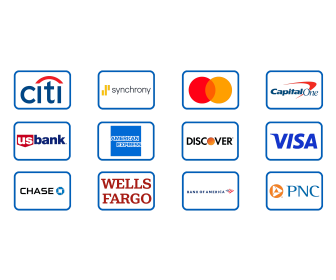Your Credit Card Payment Date Matters More Than You Think
Most people think paying their credit card bill on time is enough to keep their credit score healthy. But there’s a hidden timing trick that can make or break your score: when you pay. The date you make your payment — not just the due date — can have a major impact on your credit utilization, interest charges, and even your approval odds for future loans. Here’s why your payment date matters more than you think.
1. The Difference Between “Statement Date” and “Due Date”
Every credit card has two key dates: the statement closing date and the payment due date. The closing date is when your card issuer totals up your monthly balance and reports it to the credit bureaus (Experian, Equifax, and TransUnion). The due date, usually about 20–25 days later, is when your payment must be received to avoid late fees or interest.
If you wait until the due date to pay, your statement balance — which might still show high utilization — has already been reported to the bureaus. That means your credit report could display a high balance even if you pay it off right after, temporarily lowering your score.
2. Credit Utilization Is Calculated Before You Pay
Credit utilization — the percentage of available credit you’re using — makes up about 30% of your FICO® Score. It’s one of the most important factors lenders look at. The problem? Utilization is usually calculated based on your statement balance, not your post-payment balance.
Example: You have a $5,000 credit limit and spend $2,000 this month. If your statement closes before you pay, your utilization is 40%, which could slightly hurt your score. But if you pay $1,500 before the statement date, only $500 is reported — and your utilization drops to 10%, improving your score almost immediately.
3. Early Payments Can Save You Interest Too
Even if you pay in full every month, paying early has another perk: it reduces your average daily balance, which determines how much interest you owe if you ever carry a balance. Since most cards calculate interest daily, paying before your statement closes minimizes interest accumulation — even if you can’t pay the entire balance at once.
4. The “Twice-a-Month” Strategy
To keep your utilization low and avoid surprises, consider paying your credit card twice a month. Make one payment a few days before the statement closing date (to reduce what’s reported), and another before the due date (to avoid interest). This technique smooths out cash flow and helps maintain a consistently strong credit profile — especially useful if you’re planning to apply for a mortgage, car loan, or new card soon.
- Step 1: Find your statement closing date (listed on your billing statement).
- Step 2: Make a partial payment before that date.
- Step 3: Pay the rest by the due date to stay interest-free.
5. When to Adjust Your Payment Schedule
If your paychecks don’t align with your statement cycle, most banks let you request a new due date. Aligning it with your income schedule (for example, right after payday) can help you stay consistent and avoid late payments. Many issuers, including Chase, Capital One, and Discover, allow you to change this online or through their mobile apps in minutes.
Expert insight: Most consumers focus on “never missing payments,” but pros focus on when they pay. Paying before reporting dates is a quiet credit optimization hack that can raise scores by 20–40 points without spending a dollar more.
Final Thoughts
Your payment date is one of the simplest yet most overlooked levers in credit management. By learning your statement cycle and timing your payments strategically, you can boost your credit score, reduce interest, and strengthen your financial image — all without changing your spending habits. The calendar matters more than you think, and mastering it can unlock better rates, faster approvals, and financial peace of mind.
Not financial advice. Credit reporting schedules may vary by issuer. Always confirm your statement closing date and reporting cycle directly with your credit card provider.
Continue reading: How Your Credit Utilization Ratio Affects Your Score — And What to Do · Is It Better to Pay Off a Credit Card Early or Keep a Low Balance?



